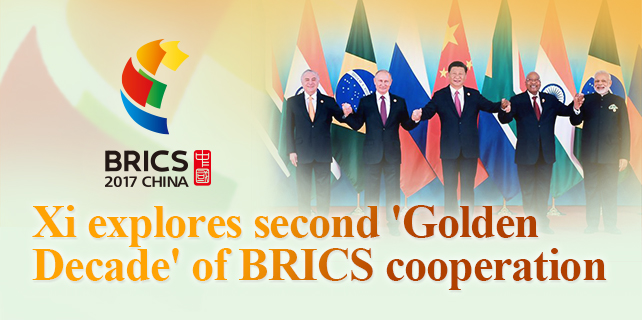Chinese philanthropists' role in sustainable development
Development needs to be addressed through a multi-stakeholder approach and philanthropists have an important role to play in creating a better shared future and contributing to the Sustainable Development Goals, says Patrick Haverman, deputy country director of United Nations Development Programme in China.
Chinese philanthropists have the potential to transform the philanthropic sector and contribute to the Sustainable Development Goals, Haverman said, highlighting a new report launched on Monday by UNDP and the China Foundation Center in Beijing.
The Sustainable Development Goals is a set of 17 "Global Goals" with 169 targets proposed by United Nations. It was adopted to end poverty, protect the planet, and ensure prosperity for all as part of a new sustainable development agenda on September 2015.
The report, Philanthropy for the SDGs in China, aims to mobilize Chinese philanthropists to realize the 17 goals by linking them with philanthropic projects and displaying their contributions through a report on an internet platform.
Based on the center's core data, the newly-developed platform describes the development of the Chinese philanthropic sector and its contribution to SDGs. It provides support for decision-making regarding SDG-related projects by allowing foundations to search for relevant information and look for potential partners.
"Through this report we hope to encourage greater philanthropic engagement on the SDGs. Philanthropists have an important role to play in creating a better shared future, and UNDP hopes that they will be better able to contribute to the SDGs, taking on ever greater roles in shaping a better tomorrow," said Haverman.
The report provides recommendations for an action plan for the further development of the Chinese philanthropic sector under the SDG framework. It also shows that the Chinese philanthropic sector has great potential to promote the achievement of SDGs in China.
UNDP hopes to introduce the SDGs as a standardized international benchmark to evaluate and monitor the growth of the philanthropic sector both within China and abroad. Sustainable data-sharing and collaboration will help normalize the use of the SDG agenda as a basis for communication among various stakeholders and will help encourage China's philanthropic sector to become more aligned with the SDG agenda.
Moreover, the partnership will further promote the effective integration of sustainable development into the strategic plans of China's charitable organizations and foundations, maximizing their contribution to achieving the SDGs.
However, Gu Qing, assistant director of UNDP China, said during the panel discussion that the investment and focus for each goal is imbalanced. She hoped that, through the report, people would pay more attention to unpopular sustainable development goals such as green energy.
Xu Yongguang, president of Narada Foundation, said China's philanthropic sector needs to think more of how it can "go out", especially under the trend of the Belt and Road Initiative.
















